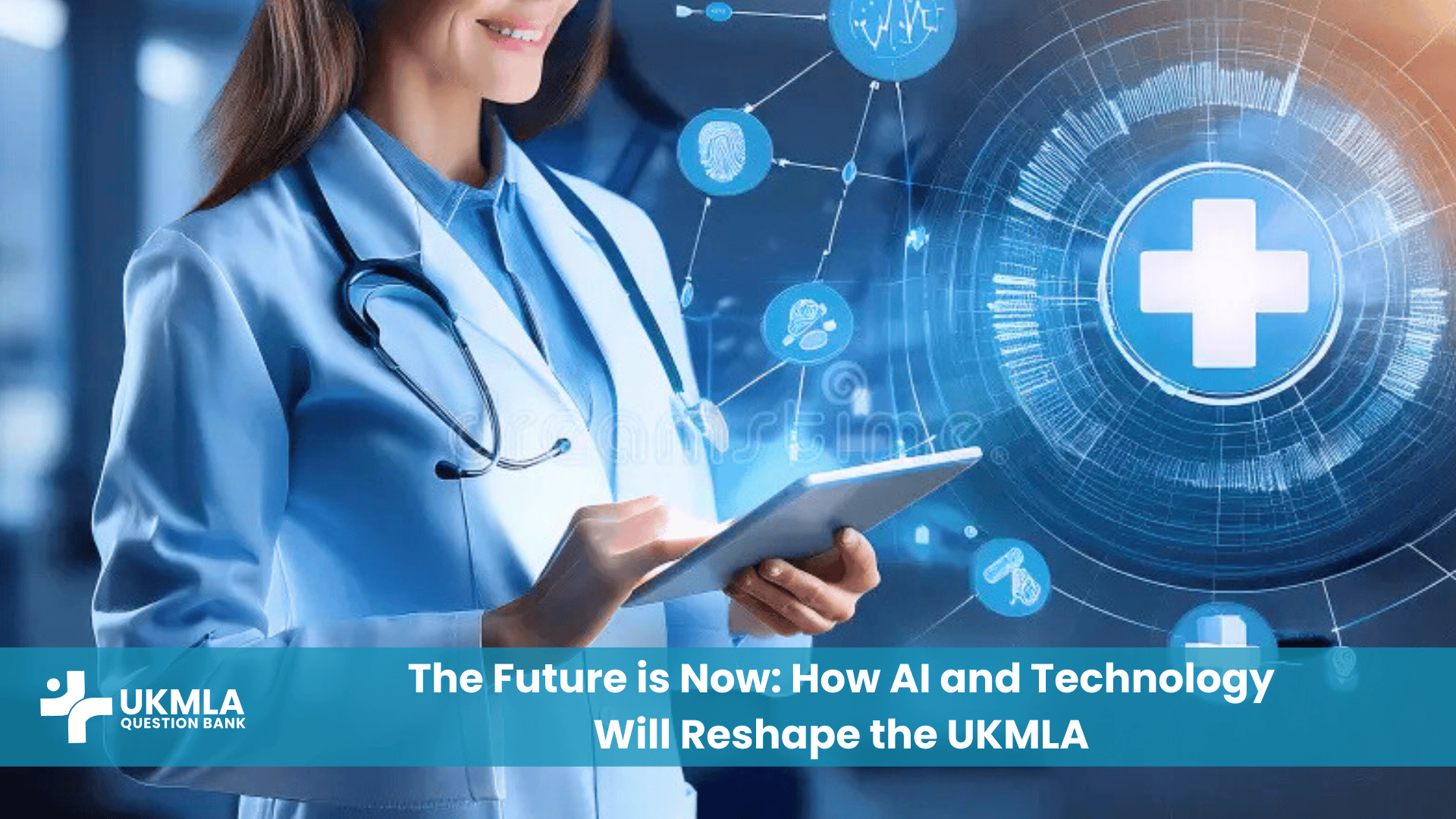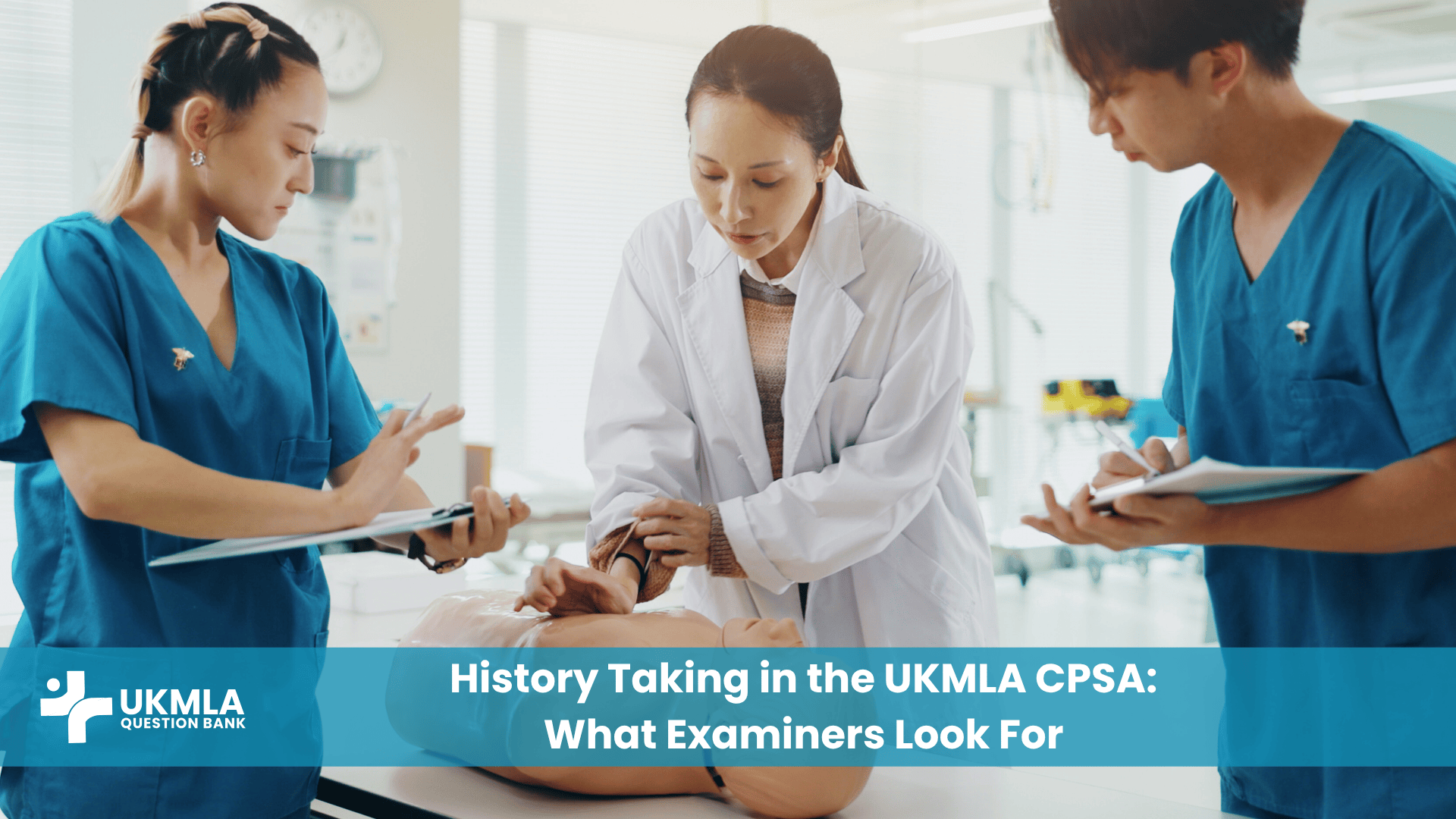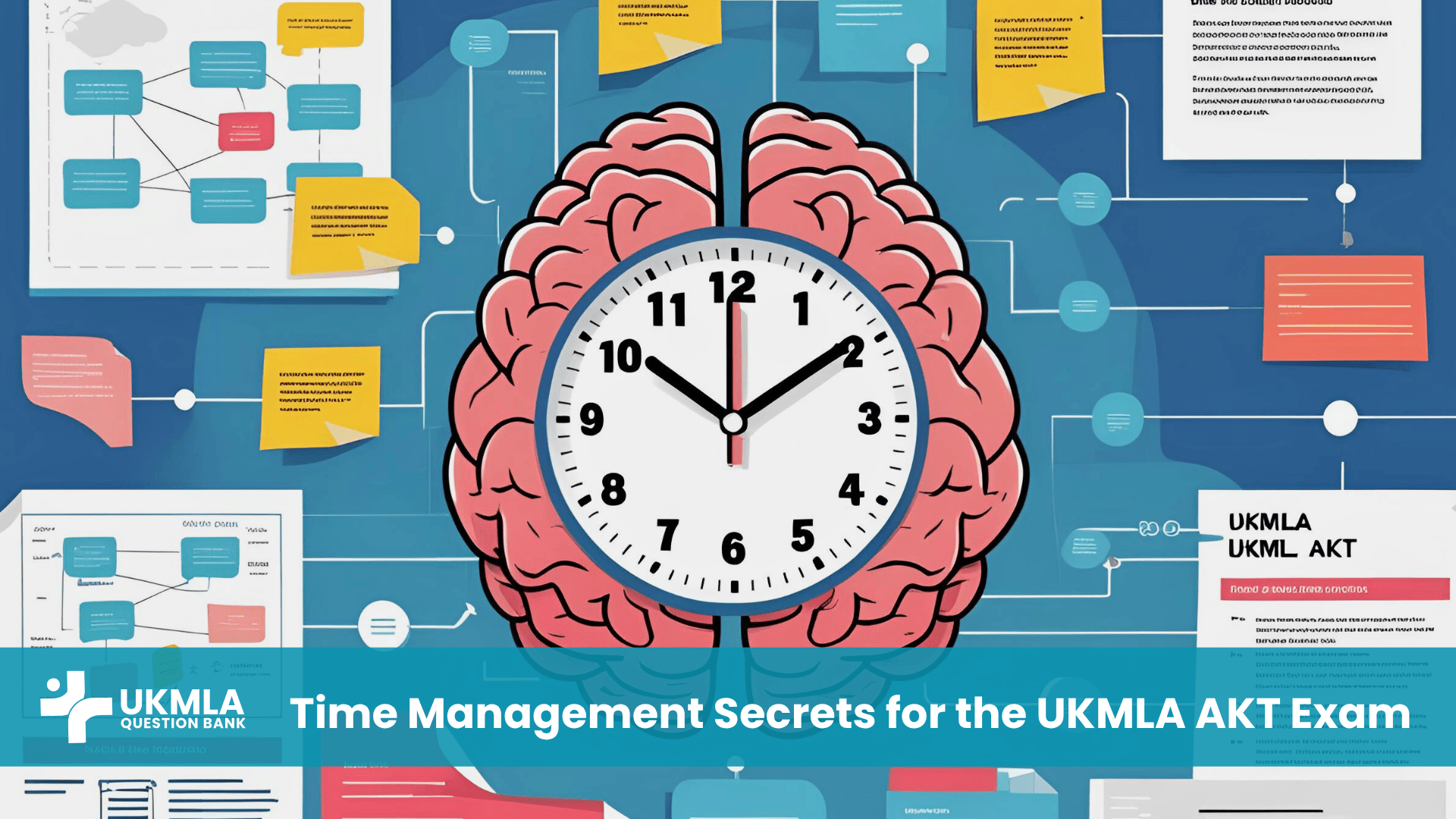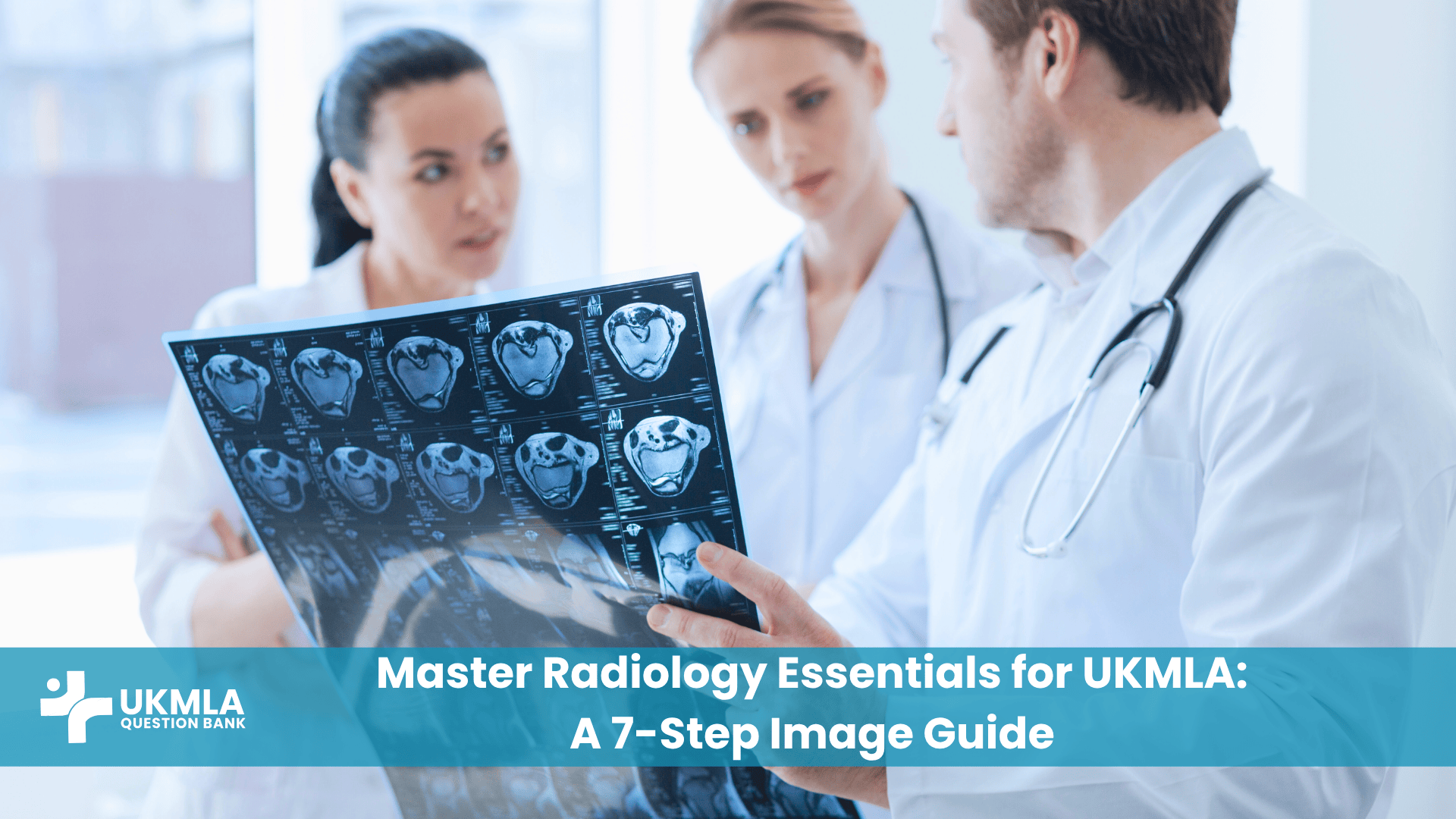Introduction
The role of AI in medical exams is the next major evolution in a field that has always been shaped by technology, from the stethoscope to the MRI scanner. Now, the next wave of innovation is set to transform not just how we practice medicine, but how we are assessed. The integration of Artificial Intelligence (AI) and advanced digital tools into medical education and examinations is no longer a question of ‘if’, but ‘when’.
This shift was formally explored in the landmark The Topol Review, an independent report commissioned to prepare the UK’s healthcare workforce for a digital future. It identified the key technologies that will soon become central to healthcare, and therefore, central to the exams that guard entry into the profession.
Table of Contents
ToggleThis article explores the five game-changing trends, grounded in the findings of the Topol Review, that will define the future of the UKMLA. We will look at how AI, virtual reality, and big data will move from the pages of science fiction into the core of your AKT and CPSA. This isn’t about a distant future; it’s about understanding the evolution of the exams you will be taking and the skills you will need to succeed. For a baseline, it’s helpful to first review the current Understanding the UKMLA Exam Format.
The 5 Game-Changing Trends for AI in Medical Exams
The Topol Review identified a range of technologies set to impact the NHS workforce over the next two decades. Five of these have profound implications for the structure and content of medical exams.
Trend 1: AI-Powered Adaptive Testing for the AKT
What it is: Current exams present a fixed set of questions to all candidates. Adaptive testing uses an AI algorithm to adjust the difficulty of questions in real-time. If you answer a question correctly, the next one gets harder; answer incorrectly, and it gets easier. This continues until the AI has a highly confident measure of your true ability.
The Impact: This creates a far more precise and efficient assessment of a candidate’s knowledge. It can accurately differentiate between candidates at all levels, from those at the passing boundary to those at the very top of the cohort. For the AKT, this means a shift from simply measuring a pass/fail standard to creating a detailed profile of a candidate’s strengths and weaknesses, a core part of any strategy for Mastering the UKMLA AKT: Proven Strategies for a High Score.
Trend 2: Virtual & Augmented Reality (VR/AR) for the CPSA
What it is: The Topol Review highlights that immersive technologies like VR are powerful tools for teaching complex procedures. The next step is using them for assessment. Imagine a CPSA station where you put on a VR headset and are transported to a realistic A&E cubicle with a virtual patient who is having an acute asthma attack or a seizure.
The Impact: VR allows for the standardized, safe, and repeatable assessment of high-stakes clinical skills. Every candidate faces the exact same scenario, with the virtual patient responding realistically to their actions. This can test emergency management, procedural skills, and decision-making in a way that traditional role-playing cannot. It moves the UKMLA CPSA Explained: Format, Stations, and Assessment Criteria from a simulated environment to a fully immersive one.
Blockquote: As Dr Eric Topol himself stated in the review’s introduction, “Extraordinary accomplishments, from dissecting and defining DNA to creating such pervasive electronic technologies… have unwittingly set up a profound digital disruption in medicine… the digital revolution has barely intersected the medical world. But the emergence of powerful tools to digitise human beings… creates an unparalleled opportunity to inevitably and forever change the face of how healthcare is delivered.”
Trend 3: Automated Scoring and Real-Time Feedback
What it is: The review discusses how Natural Language Processing (NLP) can analyze speech and text. In an exam context, this means AI could analyze a candidate’s verbal responses in a consultation station. It can assess the clarity of an explanation, the use of empathetic language, and the structure of a clinical handover.
The Impact: This offers the potential for more objective scoring of communication skills, reducing inter-examiner variability. Even more powerfully, it could provide candidates with instant, detailed feedback on their performance, breaking down their consultation and highlighting specific phrases or moments where they excelled or could improve.
Trend 4: Big Data Analytics for Exam Performance
What it is: Every year, thousands of candidates generate millions of data points through their exam answers. AI and machine learning can analyze this vast, anonymized dataset to identify trends with incredible precision.
The Impact: For exam bodies, this can highlight poorly performing questions or entire topics where candidates consistently struggle, suggesting a need for curriculum change. For students, this could power the development of highly personalized revision plans. An AI could analyze your performance in a question bank and create a study schedule focused on your specific knowledge gaps, moving beyond simple performance metrics.
Trend 5: AI-Driven Proctoring and Exam Security
What it is: As exams move to more flexible or remote formats, ensuring their integrity is a major challenge. AI-driven proctoring uses a candidate’s webcam and microphone to monitor for suspicious behaviour, such as looking away from the screen too often, having another person in the room, or using a phone.
The Impact: This technology, while controversial, makes remote examinations a more viable and secure option. It allows for greater flexibility in when and where exams can be taken, while aiming to maintain the high security standards required of a medical licensing exam.
The Human Element: Will AI Replace Doctors?
A common anxiety surrounding the rise of AI in medical exams and practice is the fear of being replaced. The Topol Review addresses this directly.
AI as a Tool, Not a Replacement
The report’s central conclusion is that these technologies will not replace healthcare professionals but will enhance and augment them. AI is presented as a tool to automate mundane or repetitive tasks, improve the accuracy of diagnosis, and streamline workflows. This is designed to free up clinicians from administrative burdens.
The Enduring Importance of Empathy and Clinical Judgement
The Topol Review refers to the time saved by technology as “the gift of time”. This is time that can be given back to the patient, allowing for deeper interaction and strengthening the patient-clinician relationship. While an AI can interpret a scan or analyze data, it cannot replicate genuine empathy, compassion, leadership, or nuanced ethical reasoning. Future exams, enabled by AI, will likely focus even more heavily on assessing these uniquely human qualities, which are the bedrock of the UKMLA Medical Ethics and Law: Your Essential 4-Pillar Guide.
Frequently Asked Questions (FAQ) about AI in Medical Exams
The Topol Review provides a timeline, suggesting technologies like telemedicine and smartphone apps will be routine within a decade, while things like automated image interpretation will be scaled up between 2025 and 2030.
The review defines it as the skills, attitudes, and behaviours required to be competent and confident in a digital society. For doctors, this means not just knowing how to use the technology, but also how to critically appraise its outputs and understand its limitations.
This is a major ethical concern. If an AI is trained on biased data, it can reinforce and even amplify existing structural discrimination. The review stresses that a binding code of conduct is needed to ensure algorithms are fair and transparent.
While the core medical knowledge remains the same, your study will need to include a greater focus on digital and genomic literacy. You will need to be comfortable interpreting data from new sources and working collaboratively with technology.
Yes. The review explicitly recommends that “education providers should ensure genomics, data analytics and AI are prominent in undergraduate curricula for healthcare professionals”.
The ultimate goal is to empower patients and deliver safer, more effective, and more personalized care. By using AI to improve diagnostics and efficiency, the hope is that clinicians will have more time to focus on the human side of medicine.
Yes. Many modern question banks and revision platforms already use algorithms to track your performance, identify weak areas, and suggest topics for you to focus on. This is a simple form of personalized, adaptive learning.
The review identifies several major barriers, including uneven NHS data quality, gaps in information governance, and a lack of expertise among the current workforce.
Not necessarily. The review emphasizes digital literacy, not becoming a computer scientist. You need to be an expert user and critical appraiser of technology, not the person who builds it.
While difficult to single one out, the review repeatedly highlights the importance of empathy, collaboration, and the ability to manage the patient-clinician relationship, as these are tasks technology cannot automate.
Conclusion
The integration of AI and technology into medical assessment is an inevitable and exciting evolution. As the Topol Review makes clear, the goal is not to create robot doctors but to use powerful new tools to assess clinical competence more accurately and efficiently. The five trends we’ve explored—adaptive testing, VR simulations, automated feedback, big data analytics, and AI proctoring—will fundamentally reshape the experience of taking the UKMLA over the coming years.
For you, the candidate, this represents both a challenge and an opportunity. While the format of the exam will change, the core principles being tested will not. The need for deep medical knowledge, sound clinical reasoning, and profound human empathy will only be amplified. The future of medicine is a partnership between human and artificial intelligence. By embracing digital literacy and honing your timeless clinical skills, you will be perfectly positioned for success in the UKMLA of the future, a key part of Mastering the UKMLA 2025: Your Comprehensive Guide to Success.




